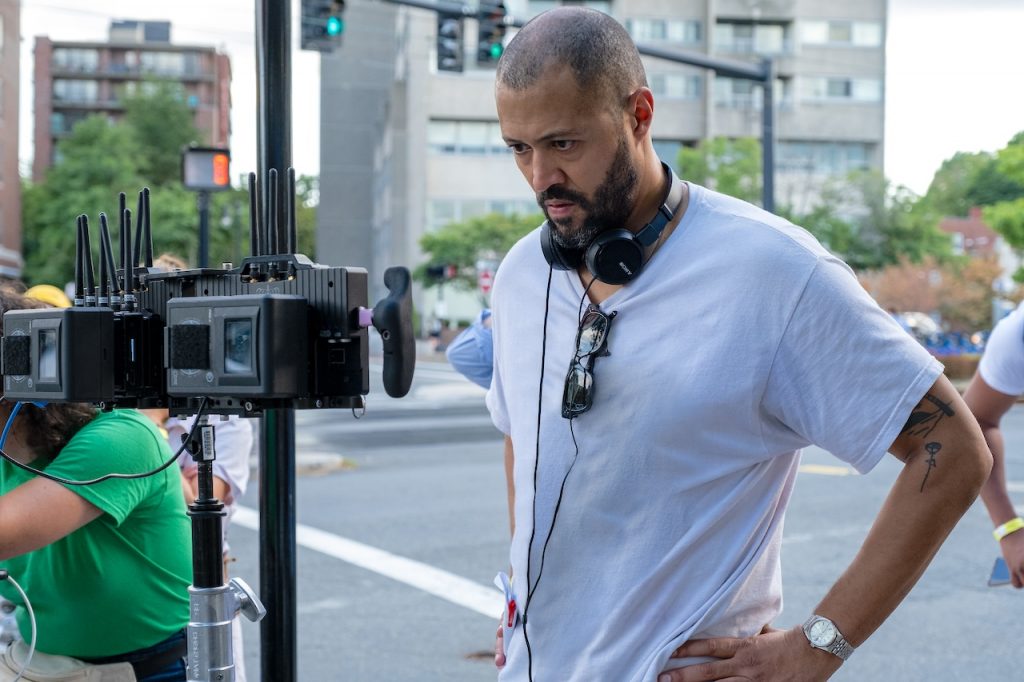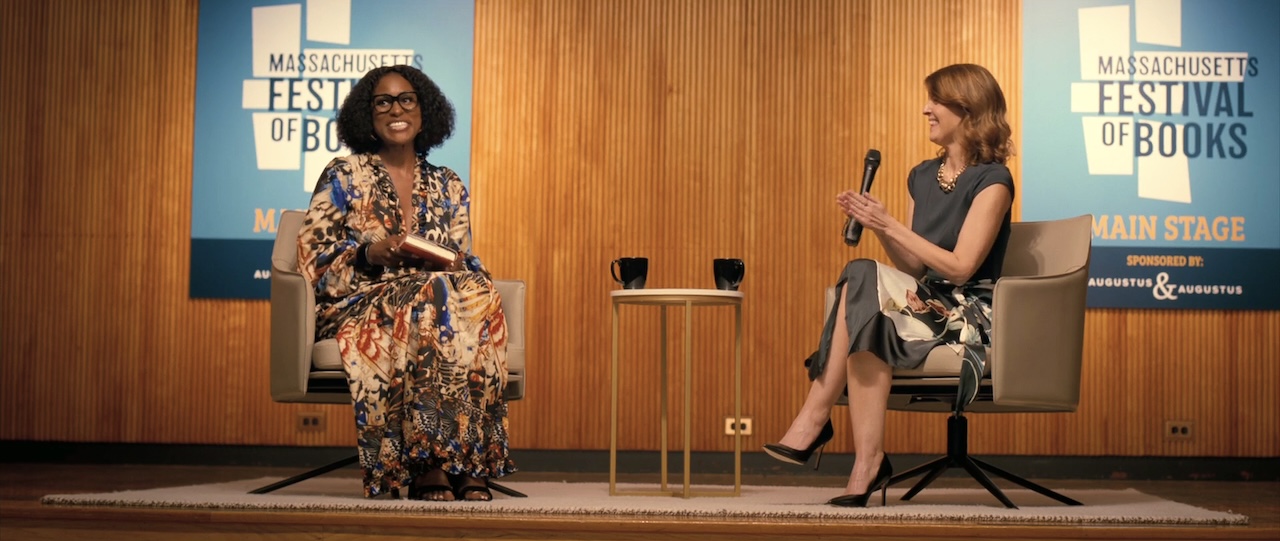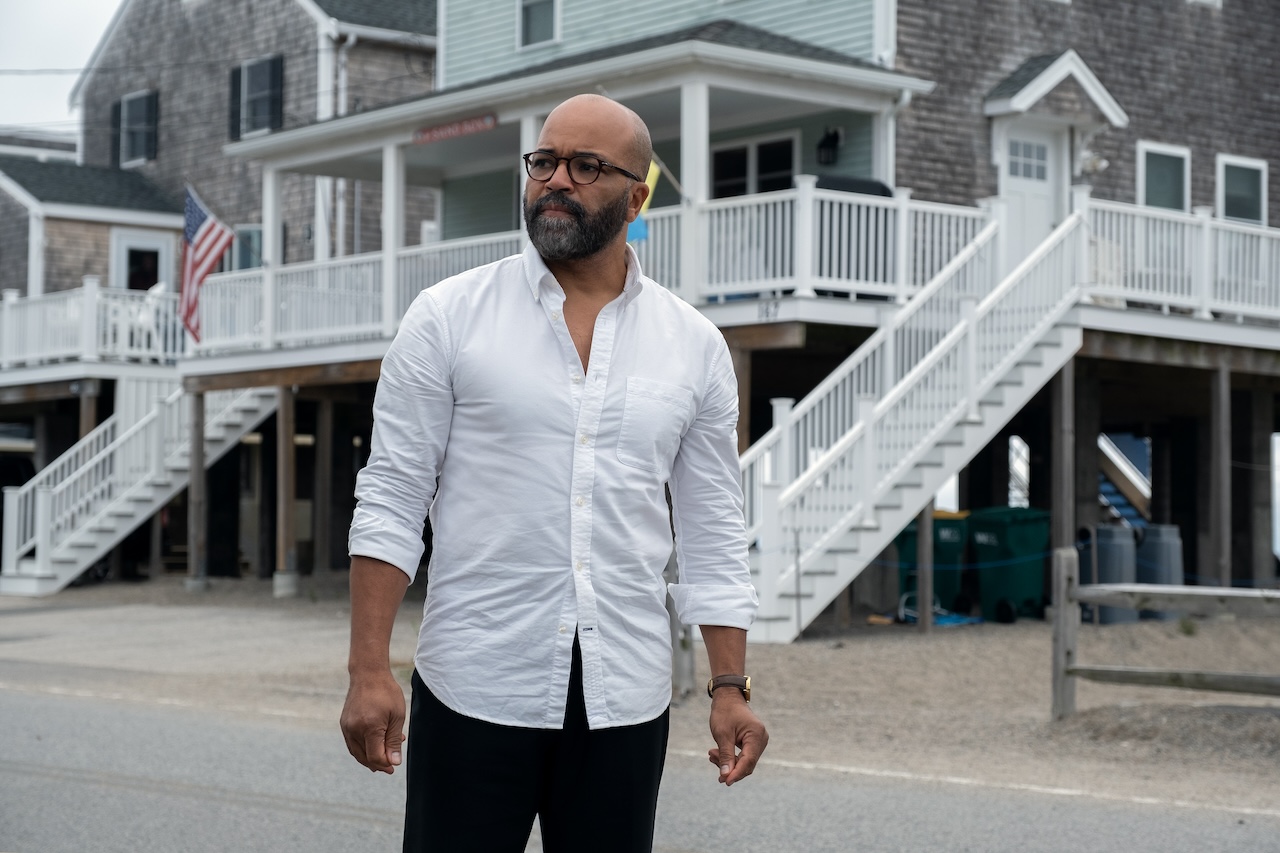“I always want to remember that what it means to be a writer is very big,” says Cord Jefferson, who lists writers like Joan Didion and James Baldwin as his influences. “A lot of writers limit themselves. I’m a sports journalist and a novelist. I want to look at writing like a toolbox. You can use a toolbox to build a coffee table, a rocking chair, or a house. These skills are applicable to different things.”
For many years, Jefferson was a journalist before he got into film and television. “I was proud to be a journalist, but I knew I wanted to maybe write a book or a movie one day. I think a bigger, catch-all term is ‘storyteller.’ If you are a person who is interested in writing novels, you can probably write a pretty good article, or an interesting screenplay.”
“The connective thread between these things is that you know how to capture an audience’s attention and bring them from the beginning to the end. Once you figure out how to do that, it’s more about what medium to apply that skillset to, as opposed to, how can I do that thing? To me, that was always what I sought out when I came to writing.”
Jefferson’s journalistic background taught him to ask the question, “Why now?” which he brought to other media. “Why should this be on the cover of the newspaper? Every time I approached TV or a movie, I asked, ‘Why should this be in the world right now?’ I don’t think people often ask themselves that. ‘What’s the relevance and timeliness of a story?’ I think that helps it break through the clutter.”

Cord Jefferson. Photo by Claire Folger
Jefferson’s move to script work is envious to say the least. He’s got credits on Master of None, The Good Place, Watchmen, and Station Eleven. Now, his new film American Fiction is the topic of many Oscar debates (and five nominations) which explores the hot-button issue of stereotyped Black entertainment and writing to them.
Becoming A Writer/Director
Jefferson said when he decided he wanted to direct the film, he didn’t go back and change anything in the script. “The writing guided the decision to direct. I knew by the time I was done with the script that it would feel so deeply personal to me that giving it away would feel like giving away a limb or a child. I knew I was going to put so much of my lived experience into the script that the idea of giving that to another direction, I couldn’t fathom that.”
Early on, he knew he wanted to also direct the film. “In fact, the script is what gave me the courage to direct the film. I knew it would be so personal that I would understand the characters on such a fundamental level, that that gave me the courage, even though I hadn’t directed before. But I knew the characters so intimately, that all of the decisions, at least technically, can be guided by the script.”
Now that he has directed, it has shaped future writing. “The scripts I’m working on right now, I’ve had several instances where I’m writing a scene and realize that if I were to direct this scene, I would cut half of it. Half of it is unnecessary. A lot of this is just writing for the sake of writing because you like the language or you like the dialogue. But, do you need it in the final iteration of the film? No. So directing has made me more of an economical writer, a more thoughtful writer of what’s needed.”
Another aspect that changed Jefferson’s writing was how personal the IP felt while reading the book on which American Fiction is based, Erasure by Percival Everett. Because of all of these connections to the book (family life, black culture, writer mindset, even location), he’s continuing to go more personal with future work, although he’s thinking more about genre. “One is a thriller and one is a western. They’re more geared towards action scenes. They have black characters, but they’re not about race as an idea. I want to zig when people think I’m going to zag.”
Dealing with Failure
Before Jefferson found the book Erasure, he had a TV series that almost went to air but derailed inches before the finish line. “That TV show was so close to being a greenlight that they were telling me where I should look for my Airbnb in relation to the production offices,” he jokes. “That’s how close we were. Then at the very last minute, it was shuttered.”
This was October 2020. “I was feeling creatively adrift for the rest of that year. I had no idea what I was doing. I found this book, not because I was looking for a creative project, but because it was interesting. I found the thing I wanted to work on next and threw myself into that. Making this movie has changed my life. Had I been working on that TV show, I would have not found this book.”
Jefferson says he may have still had success, but finding this book changed his life in a multitude of ways. “They wouldn’t have let me be a director on that TV show. I would have been a writer. I wouldn’t have had these opportunities. I would have had success in a different way, maybe, but I wouldn’t have had this success and this experience.”
“The great thing about being an artist is that we’re not athletes. We don’t have to utilize our potential before our bodies give out at the age of 29 or 30. The great thing about being an artist is that as long as your brain works, you’re good. You keep getting better and consuming more art and keep working on your voice to make stuff, build, and grow. It’s a marathon, not a sprint. You have your entire life to work on this and become a better artist.”

Sintara Golden (Issa Rae) & Nicole Kempskie (moderator) Photo courtesy of ORION Pictures Inc.
At the time of that TV show falling apart, Jefferson had doubts he would ever get his own TV series made. “It can be frustrating. I thought I needed to resign myself [to staff writing], but this industry is a war of attrition. You just need to outlive the people who tell you ‘No.’ Outlast those who tell you ‘No.’ You don’t need a huge success when you’re 25. There’s still going to be an opportunity to get your stuff in the world.”
Improving the Conversation
When we spoke with Eugene Ashe on his film Sylvie’s Love, the screenwriter said he wanted to make a black love story set in 1950s Harlem and felt obligated to make it about race. Jefferson’s movie American Fiction highlights this issue in modern storytelling. “I am an optimist that while I think things are far from perfect, they’re better than they used to be. I think the conversations we’re having about race are becoming more complex.”
The screenwriter references the new Sundance film The American Society of Magical Negroes. “This seems to be talking about race in a more nuanced way than we’ve seen it before. There are works of art that seem to be addressing these issues in more nuanced and different ways. We have a long way to go, but I do think we are taking baby steps.”
As for Jefferson, he’s off to the next project, but often thinks back on his time with author Percival Everett, who is a prolific writer and teacher (he also paints and breaks horses in his free time). “What makes him prolific is that he works for himself. He doesn’t work for other people’s acceptance of what he makes. I’ve never met someone more comfortable in their own skin than Percival Everett. He makes work purely because he wants to make the work. He has no interest in fame or riches.”
There’s a quote in the movie that goes, “A genius is the one most like himself” and that’s a lesson Jefferson often thinks of.
“Another lesson from Percival is that American Fiction was the first time I wrote a script entirely for me. It wasn’t someone coming to me with a novel, or the rights to a job, or looking for a movie on a black writer. It was that I found this thing I was deeply passionate about and I wanted it to exist in the world. It was the first thing I had made. It was the thing I loved and people took a risk on it. There’s a lesson there. When you focus on what speaks to you, what you love, what you’re passionate about, that’s going to get other people on board. If you’re passionate, there is a market for what you’re trying to do.”
This interview has been condensed. Listen to the full audio version here.

